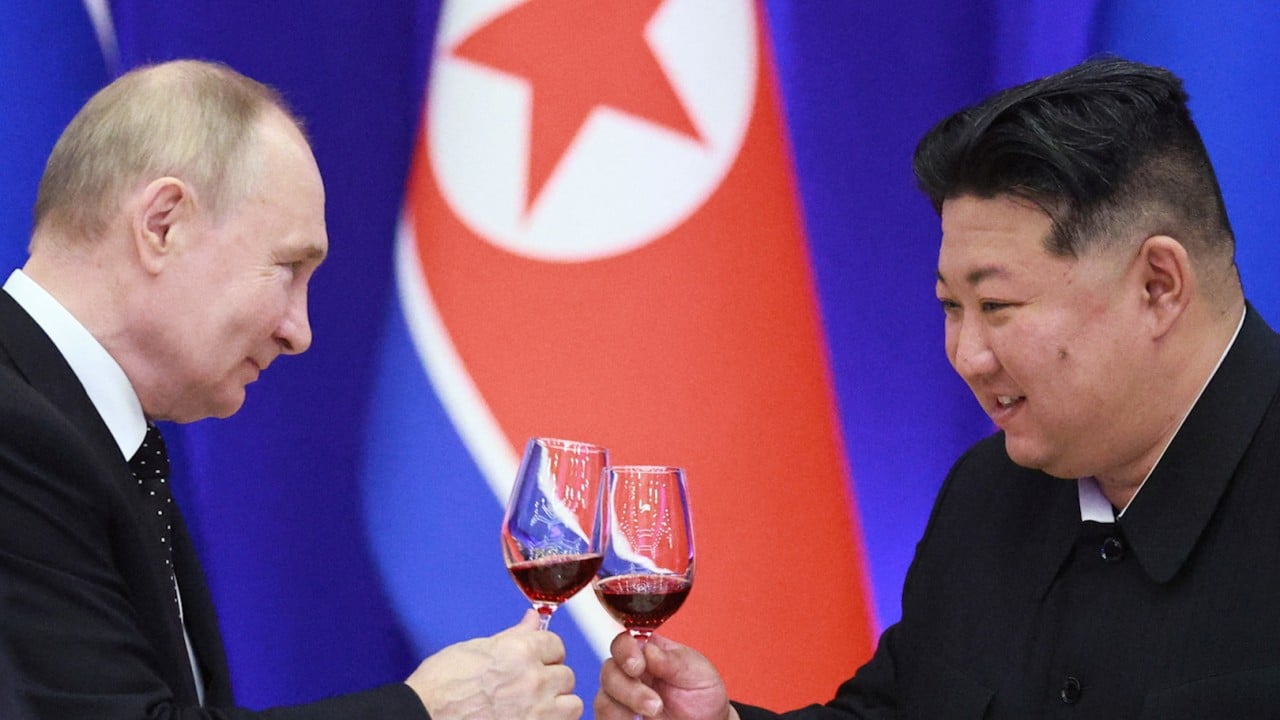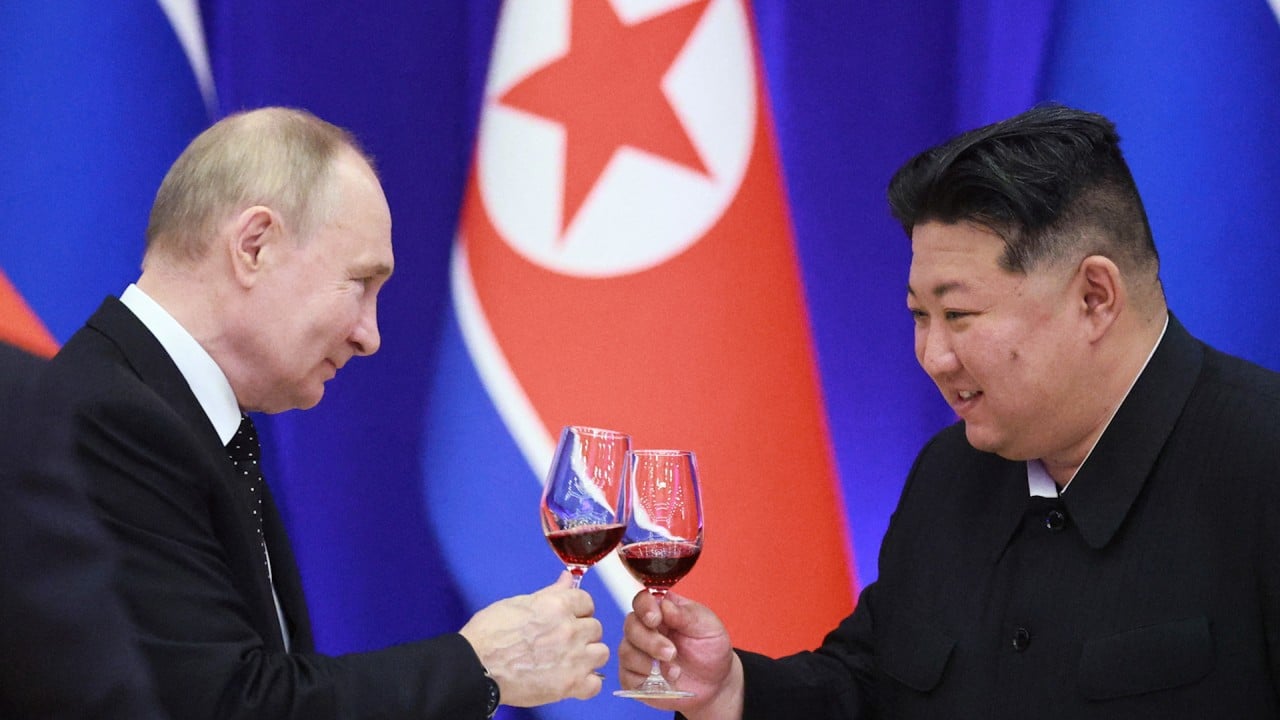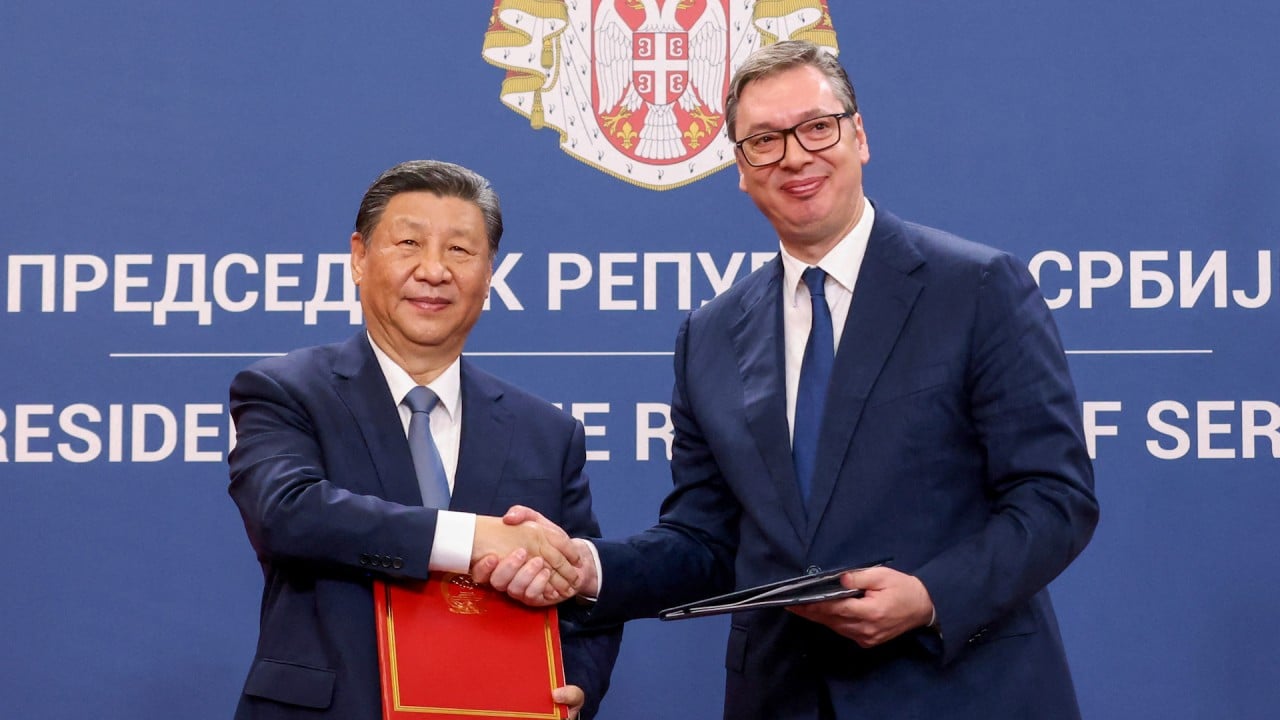Is it checkmate? When the Kremlin announced Russian President Vladimir Putin’s state visit to North Korea, the West was sceptical about what would be accomplished. The “ceiling” on the visit appeared to be the continued flow of North Korean weapons to Russia. The possibility that Russia and North Korea would do more was pushed aside. Few people seemed to be connecting the dots.
Earlier, at the St Petersburg economic forum, Putin warned that Moscow could arm states (and groups) that could then attack the West. It was Russia’s retaliation, as the West had approved Ukraine striking targets in Russia using Western weapons. Then Putin flew to Pyongyang.
Old shackles on Russia-North Korea relations were broken. A new alliance was formed. At the core: a mutual defence deal pledging protection and support in the face of “aggression”. The details are sparse. But the idea that Russia could defend North Korea if hostilities break out or that North Korea could come to Russia’s defence in war is moving the tectonic plates of geopolitics.
It changes the calculations nations will make in Asia – and globally.
To start with, Russia seems to be taking a page out of America’s playbook. For months, the United States and Saudi Arabia have reportedly been quietly negotiating a deal that would integrate Washington and Riyadh on a new axis. Part of the deal would reportedly see the US sign a defence treaty with Saudi Arabia, similar to what America has with Japan, South Korea and the Philippines. It means if Saudi Arabia ever goes to war, America will defend it.
Russia has signed effectively the same deal with North Korea. A new kind of superpower competition may have begun, where the US and Russia are dangling their “ace card” in front of nations, pledging to defend them in wartime, to bring these countries into their corner. And there is little stopping others, like China, from introducing similar arrangements.
It further pulls the world back into a pre-World War I set-up, where the zigzag of defence treaties across Europe forced the great powers to fight one another.
For the international community, already on edge with the wars in Europe and the Middle East, the Russia-North Korea deal raises the stakes considerably. A war between North and South Korea would now threaten to pull in the world’s two largest nuclear powers. With the US sworn to defend South Korea, and Russia pledging to defend North Korea, a conflict on the Korean peninsula would put Moscow and Washington on a collision course.
A future Korean war must be averted at all costs. In effect, the North Korea-Russia deal could act as a deterrent and ensure the stand-off between North and South Korea, which never formally ended, remains “frozen” for a long time, because of fear of what could result from war breaking out.
Then, of course, there is the big challenge surrounding China. For decades, North Korea has been firmly in the Chinese camp. But the new deal brings Russia and North Korea together in a way that could jeopardise China’s interests.
This might be what Russia intended. Because, from Serbia to Georgia, China has been making strategic inroads in Russia’s sphere of influence. In Georgia, for instance, China has won the bid to build one of the nation’s most strategic ports on the Black Sea. Russia drawing closer to North Korea could mark the start of a new strategy, where it takes on China in the shadows, attempting to draw nations out of China’s camp, the same way Beijing is doing with nations in Moscow’s camp.
These two streams – Russia dangling its military protection and pulling nations into its orbit – point to a threefold goal: build a new kind of Russian power, take on the West and ensure Russia has “strategic autonomy” from China.
But this also creates vulnerabilities. Russia’s economy is already being stretched by the Ukraine war. Signing defence treaties only overextends its defence commitments. Considering North Korean soldiers have twice crossed the demilitarised zone bordering the South in past weeks, including in one instance setting off landmine explosions, Russia’s commitment could suddenly be called upon, creating a new geo-economic crisis for Moscow.
The developments further signal how flashpoints are beginning to evolve in unpredictable ways, moving further away from resolution and closer to destabilisation. Whether it is Taiwan, Kashmir or Hamas-Hezbollah, leaders could take unorthodox action towards other hotspots that results in structural changes, ringing alarm bells.
Lastly, the Russia-China relationship is not all romance and roses. Clearly, in Moscow, there is a growing fear of Russia becoming subservient to China through the energy and trade relationships. Russia has seemingly begun to reverse the stream, and build “insulation” between itself and China.
The landmark deal between Russia and North Korea represents a new chapter in geopolitics. The old contours of the Cold War are returning. And old gambits, like trading military protection for loyalty, are back on the table. Except the world today is a different place. Nations are behaving more boldly than ever before.
The Russia-North Korea alliance may be the start of many such others, as world powers commit themselves to flashpoints in new ways. In the process, they may push the globe into a period of danger and disruption, where “red lines” are constantly tested, and the threat of a major war constantly raises its head.
Abishur Prakash is the founder of The Geopolitical Business, an advisory firm in Toronto




